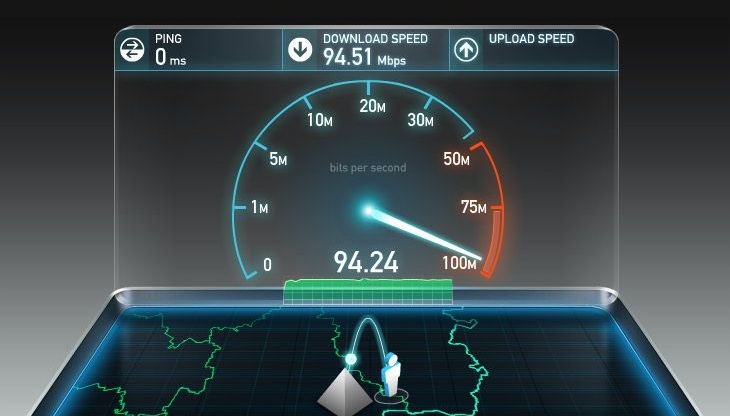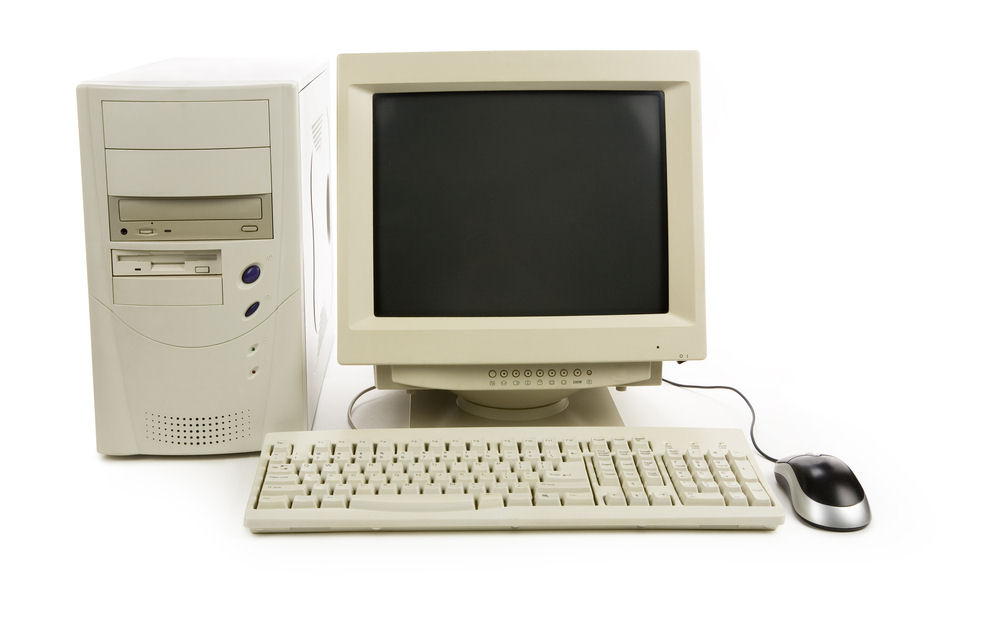Why the internet speed has dropped. Why the real internet speed may differ from the declared one
There are two types of reasons for low internet speed, first- these are user-dependent reasons, second- reasons depending on the Internet provider.
User dependent reasons:
1. Operating system
This problem is solved by reinstalling the system. Especially it is worth thinking about those who have different assemblies - animals, extreme sports and others. The best option is to install a clean operating system, deliver all the software you need and use it to your health.
2. Viruses
Trojans and Spyware, can significantly slow down the Internet. Programs such as keylogger can track your actions and transmit various information via the Internet. Some viruses can completely block your Internet access.
3. Antiviruses and firewalls
Another reason that the Internet has become slower is the antivirus and its firewall. With its help, the antivirus checks information on the fly, which of course will affect the speed of the Internet and, in general, the work of your computer. Disable the antivirus firewall or firewall and measure the speed, if the problem disappears, you will have to choose or good protection or internet speed. One of the solutions to this problem is to replace the antivirus.
4. Technical limitations of routers
If you have a router installed at home, then you must carefully read it. specifications(remember, the manufacturer always overestimates the capabilities of their devices by 10 -15 percent). Another option, if you have installed wireless router and the mood was not correct, perhaps someone other than you in this moment posed by your internet.
Disconnect the router and go online without additional equipment.
5. The problem with the cable in the apartment
One of the most common misconceptions is that the cable either works or it doesn't! But at the very barely, the quality of the connections and the condition of the cable play a big role in the speed of the Internet.
The main thing that needs to be done is to assess visually whether the cable is broken, whether the legs from a chair or other furniture are on it.
6. Malfunction of the network card
In most cases, the malfunction of the network card will be implicit, your network card will be perfectly detected in the system, react to the included cable, and show that the cable is connected.
If possible, then connect another computer, if not, take another network card and try to connect through it.
Reasons not depending on the subscriber:
On the part of the provider, there can be many reasons for the low speed, ranging from a malfunction of the equipment to which you are connected, to the congestion of both external and internal channels.
In this case, it is worth calling those support.
In most cases, the speed of Internet access for users is slightly lower than that stated in their tariff.
And now let's consider the reasons why the access speed differs and, moreover, differs in an unpleasant way for the user and the factors that affect it:
Problems with the equipment of the end user (subscriber)- if you have an outdated or incorrectly configured router, an old network card or drivers that do not match it, the result is a low speed of access to the network. It is especially important to install correct drivers on the Wi-Fi adapter- at first glance, they may work, but not the way they should.
Problems with software
— low speed the Internet is very often associated with the presence of various kinds of "harmful to the speed of the Internet" software on the computer. In fact, this is one of the main reasons. Moreover, in this case, all kinds of Ask.com panels, Yandex.Bar, Mail.ru search and defender, etc. can be classified as “malicious”. - sometimes, it is enough just to remove all these programs from the computer and the Internet will stop "slowing down". Continuous use of your computer, installing and uninstalling applications, and browsing the web lead to corrupted and outdated registry entries that slow down your computer. Such entries from the registry must be removed regularly.
Physical distance to provider- the further the provider's server is located, the weaker the signal level in the network can be, the more often various packets with corrective information must pass through the network, which as a result leads to a decrease in speed.
Network congestion- the more people simultaneously use a separate line of the provider, the more significant this effect has on the connection speed. Thus, in the evening, when all your neighbors are torrenting to download a movie, the speed will decrease. This factor is especially typical for providers providing Internet access via 3G networks, in which the effect of congestion affects the speed to an even greater extent (the effect of a breathing cell - the more people are connected via 3G, the shorter the range of the network from the base station).
Limiting traffic- your ISP may deliberately restrict certain types of traffic, for example, the use of file-sharing networks. This is due to the increased load on the provider's networks, as a result of which users who do not need the Internet to download torrents have difficulty accessing the Internet.
Remote Server Side Problems- the speed with which you download files on the Internet, watch movies online or simply browse sites depends not only on the speed of your Internet, but also on the speed of access to it from the server from which you download information, as well as its load. Thus, a file with a size of 100 megabytes sometimes has to be downloaded for a couple of hours, although, in theory, at a speed of 100 megabits per second, this should take 8 seconds - the reason is that the server cannot send a file at that speed. The geographic location of the server also affects. If the downloaded file is located on a server in Russia, and is connected to the same communication channels as yourself, the speed, other things being equal, will be higher. If the server is located, for example, in the USA - the passage of packets may slow down, the result of which is a lower Internet speed.
Thus, the speed of Internet access can be influenced by many factors and it is not always easy to determine which one is the main one.
Nevertheless, in most cases, despite the fact that the Internet access speed is lower than the declared one, this difference is not significant and does not interfere with the work. In those cases, when the differences are several times, the first thing to do is to look for problems in the software and hardware own computer, and also seek advice from the provider's technical support if no problem was found on your side.
There are many services for self-checking your Internet connection speed in real time.
Important! Before you start testing the performance, scan your computer for problems and improve its performance! One of the programs to fix the slowdown of your PC, fix system errors windows registry and improve computer performance - RegClean Pro.
One of the most popular ways to check your connection speed- service speedtest.net. When you enter this site, on the page you will see a simple window with a button "Start test" or "Begin test". By pressing this button, you will be able to observe the process of analyzing the speed of sending and downloading data (It should be noted that providers, indicating the speed of the tariff, as a rule, mean the speed of downloading data from the Internet or Download speed - that is, the speed, from which you can download anything from the Internet. The sending speed may differ in the lower side, and in most cases this is not a problem).
Before proceeding directly to checking the speed on speedtest.net, you can select on the map the server that will be used - as a rule, if you choose a server that is closer to you, the result is a higher and close to the declared speed.
It is worth noting that if during the check you are connected to the network via Wi-Fi using a router, then, most likely, the speed will be lower than that which would have been obtained with direct connection when the cable is connected directly to network card computer (read about this later in this article).
For those who actively use torrenting, there is another way to more or less reliably find out what the maximum possible speed downloading files from the internet on your computer. To do this, find on the torrent tracker any file that has a significant number of uploaders (1000 or more) and not too many leechers (downloads). Put it on download. In this case, do not forget to disable the download of all other files in your torrent client. Wait until the speed rises to its maximum threshold, which will not happen immediately, but after a few minutes. This is the approximate speed at which you can download anything from the Internet. Usually it turns out to be close to the speed stated by the provider.
It is important to note here: in torrent clients, the speed is displayed in kilobytes and megabytes per second, and not in megabits and kilobits. Those. if the torrent client shows 1 MB / s, then the download speed in megabits is 8 Mbit / s.
In conclusion, let's dwell on the problems associated with routers and WI-FI wireless networks.
The router is at least frequent problem slowdown in Internet access speed, along with software problems.
To establish whether the router is the reason for the low speed, it is enough to measure the Internet speed when connecting through the router, and then connect network cable directly to your computer or laptop. If the speed is normal without a router, then the reason is in it. In this case, you need to make sure that there are no more connections to this router (be sure to check for a password on Wi-Fi or even change it, since possible reason Internet brakes is that someone else connected to your wireless network, and uses your internet channel). Be sure to check all other computers in your home network... Another computer may need to be scanned for malware or errors system registry.
If you are convinced that the problem of slowing down lies precisely in your router, then do not rush to throw it away. You should know the following:
1. All Wi-Fi routers have software and hardware limitations. This is due to the existing communication standards for wireless communication in certain frequency zones (IEEE 802.11). Simply put, the problem with the fact that the router cuts the speed most often occurs among the owners of the most common inexpensive (1000-1500 rubles) routers - D-Link, ASUS, TP-Link and others. The fact that a speed of 150 Mbps is indicated on the box does not mean at all that you will receive given speed Wi-Fi transmission. You can get close to it using a Static IP connection over an unencrypted wireless network and, preferably, the intermediate and final equipment is from the same manufacturer, for example, Asus. Such ideal conditions do not exist in the case of most Internet providers.
If we talk about the software part, then, probably, everyone has heard about the firmware of the router: indeed, changing the firmware often allows you to solve speed problems. The new firmware corrects the mistakes made in the old ones, the operation of those same hardware components is optimized for various conditions, and therefore, if you experience problems with Wi-Fi communication, you should try to flash the router with a different, newer firmware.
2. The influence of external factors.
Often the reason for the low speed is home electronic equipment and the location of the router itself (some have it in a closet with reinforced concrete walls, some have it in a metal box). All this, and especially everything related to metal and electricity, can seriously damage the quality of the Wi-Fi signal reception and transmission. The list of the most famous generators of interference includes devices used for remote monitoring of babies (so-called "baby monitors"), surveillance cameras, microwave ovens, equipment for relaying television signals, and much more.
The ideal option is to provide a line of sight between the router and client devices.
An equally important problem is that Wi-Fi routers have started to be used very widely, and your neighbors in the house have installed them as well. Now the Internet is available in almost any apartment and it is very likely that apartments are installed Wi-Fi routers... These Wi-Fi networks are located close enough, overlap each other and often operate on the frequency channels set by the manufacturer by default, creating excessive congestion and interference with each other.
You can improve the characteristics of your Wi-Fi network by changing the channels in the router or its installation location indoors. You can read how to do this, for example
Hello everyone! Today I will share with you my thoughts on how to be and what to do if your Internet speed is lower than the one declared by the operator. But first things first. Many netizens, however, do not think about some points when they ask: "Why do I have a low Internet speed?" Therefore, to begin with, let's define the terminology in order to correctly understand the essence of what is happening. As a rule, everyone talks about speeds as something abstract. Or they simply assert that "there is no speed", that there should be speed and that's it, without going into technical details.
Internet speed concept. What is speed?
Speed is the number of megabits that the Internet provider gives to the subscriber within the selected tariff. The more there are, the faster the Internet should work, many will say, but not everything is so simple. Indeed, in the past (in times of slow internet) the loading of heavy internet pages could be slow due to the low internet speed. But when the operators' tariffs have crossed the line of 2-3 megabits, you will no longer see the difference in the speed of loading web pages. Whether you have 3 megabits for a tariff or 100 megabits, the pages will load in about the same way. Therefore, the only objective definition of speed is the time it takes to download any files to your computer from the Internet. If it's simpler, it's the speed of downloading files. The more megabits you have for the tariff, the faster you can download your favorite movie, music album, games, etc. to your computer. It is very important to understand this. Firstly, by reading this information, you increase your literacy level, and secondly, you may not bother conscientious operators about trifles that you can figure out on your own.
How do I check the speed?

There is nothing difficult in this, the already existing service http://www.speedtest.net/ is great for measuring the speed of your Internet. Many ISPs post a link to this service on their websites so that any user who wants to check their speed can do it. I recommend measuring the speed to the server of your operator, and / or to another operator closest to you on the map. For example, if the subscriber's place of residence is the Perm Territory, then it is logical to perform a speed test to Perm, Yekaterinburg. In this case, you get an objective test result, which will not differ from the speed of the tariff for conscientious operators. Why is it important to measure the speed of only a knot at your / nearest neighboring point on the map? Yes, because within the network of your operator and up to the higher-level provider from it, your operator is able to provide speed at the rate. But further the speed of your Internet cannot be guaranteed. And this is not the operator's fault, this is how the world wide web, called the Internet, works. Imagine a situation, you go to a website from your computer and download a file from it. In this case, you are the client and the site is the server. And a data transmission channel is established between the client and the server. The bottom line is that if the site is located within your operator (in your city, region), then you will download the file VERY quickly. But if the site is located somewhere in Japan, then the download speed may be just negligible. Why is this happening? It all depends on the number of intermediate communication nodes through which data is transmitted, and as a rule, the more the number of intermediate nodes, the worse and slower the connection to the final resource (site). The entire internet is made up of ISPs. Small providers border on larger ones, and larger ones on those who are even larger. Therefore, if you download from a site that is geographically far away, then the packages of information passing from you to the site and from the site to you will have to go through the networks of many Internet operators. And this is a loss of speed, and in the case of game servers, an increase in ping.
Could it be the computer?

As strange as it may sound, the problem of low speed may be in the computer itself. Yes Yes exactly. One often hears such words: “I have a maximum tariff, I don’t understand why everything is so slow…”. You need to understand that the Internet is a connection that is already processed at the computer level. And the more productive and faster the computer itself, the faster web pages will load, faster applications will launch, and so on. On a slow and old computer, the Internet, in principle, will not work quickly. The minimum computer configuration in order to use the Internet relatively comfortably is a minimum of a dual-core processor and a minimum of 2 GB random access memory ... A funny case: the owner of a 12-year-old computer was sincerely surprised by the constant "brakes and freezes". At the same time, she claimed that "once" this computer worked normally on the Internet. Just "once upon a time" the Internet itself was different, there were few pictures in it, the sites were mostly text information, minimum of animations. What do we see now? Everything has changed a lot, sites began to be filled with a huge number of pictures, graphics, animations everywhere and other bold flash technologies. The modern Internet, old computers digest, as they say, "with a scratch."
Software

A variety of programs can be installed on your favorite computer for a variety of tasks. However, not all of them are created equal. Please, be careful when installing programs on your computer, there may be hidden check marks and other tricks, thanks to which completely unnecessary and even harmful software can get on your computer. I have personally seen programs that are offered as an antivirus solution, Internet protector, system optimizer, etc. So all these are potentially dangerous programs that, once they get into your computer, can greatly affect its work. May cause glitches, freezes, slow launching of applications. One such malicious program can easily drop your Internet speed. I can give a very good recommendation for such a case: keep on your computer only those programs that you really need. Get rid of various managers, SEOs, toolbars, and so on. This will put things in order in the system and get rid of unnecessary eaters of system resources, and as a result, the speed and responsiveness of your computer will increase.
Viruses do not sleep

Viruses can be one of the reasons slow work computer. By executing their algorithms, some viruses can make 100% use of the resources available on the computer. For example, Bitcoin mining. As a result, the computer will work extremely slowly, and the user will wonder what happened. Antivirus protection should not be neglected, it is needed. Without a decent antivirus software your computer will be completely defenseless against any danger. In order not to engage reinstalling WIndows every month and lose installed programs and valuable information, the computer must have an antivirus that can protect you in any situation. In Russia, the top three anti-virus protection leaders include: Kaspersky Anti-Virus, Dr. Web and ESET NOD32. Any of them will provide an adequate level of security.
I tried to describe the main situations in which it may seem that the Internet is working slowly. But often, the problem is not with him, but with the computer itself. You need to keep track of what is installed, downloaded, etc. to prevent cluttering the system and other contamination. I wish everyone fast internet and pleasure from using the computer. Until next time!
So we start by determining which operating system stands on our computer. And that our computer meets the requirements for the normal operation of this operating system. To do this, hover the cursor over the Computer shortcut, click right button mouse and open properties.
If you have an operating room windows system 7, then the following computer parameters are required for its normal operation.
- Processor with a clock speed of 1GG (gigahertz) or higher.
- Random access memory (RAM) -from 1GB (gigabyte) and above, but preferably, of course, starting with two.
- Free space on the hard disk is at least 20GB, but preferably 50, because when the OS (operating system) is updated, it will increase in size and eat up disk space.
- DirectX 9 graphics device with WDDM driver version 1.0 or higher.
- From my own experience using windows 7 as an OS I will say that these are the minimum tactical and technical data, at which it is impossible to achieve high speed of the computer. The 7 in comparison with XP requires a lot of system resources for its functioning.
Five probable reasons for low internet speed
As always, we follow the path of least resistance:
- We determine the parameters of the computer. For this, we are guided by the above. The processor may not be able to handle the data stream, especially when downloading files from torrent trackers.
- If to access the Internet you use Internet browser Explorer, then try to do this by replacing it with Google chrome, or Mozilla Firefox, I assure you that it helps a lot.
- Check if the computer is running automatic update windows, antivirus system, whether there is a download of resources from the Internet, or some programs are open. This can be spied by opening the task manager: CTRL + ALT + DEL, where, after removing all tasks, it is advisable to restart the web browser. Also check in the task manager mode processor load, if it is loaded at 100%, then this indicates an OS overload (on stationary computers this can be seen by the constantly burning indicator of the operating processes of the OS), which means that the provider has nothing to do with it.
- Install (if not) on the computer a utility to check the temperature of the main components of the computer. When the processor, motherboard, video card heats up above the permissible limits, the computer freezes completely or partially. Therefore, it is necessary to constantly monitor the processes occurring inside the system unit. I think a small program AIDA64 will be enough to monitor our hardware.
- The computer is infected with a Trojan virus, spam bot, or some other spyware. Which secretly turned off protection from you and launched processes invisible to us.
It can send spam, transfer your confidential data, e-mail passwords to its owner, upload any files to the system and thus take up part of the access channel. The best advice for me was to download Kaspersky Virus Removal Tool, from the official website and, scanning all local drives for viruses.
Thus, dear PC users, in my opinion, the above may be five main reasons for low internet speed... But what you say about this, I think in the near future I will read it in the comments.
And for those who forgot to get useful information
 Why does the blue screen turn on on the iPhone Blue screen on the iPhone 5s what to do
Why does the blue screen turn on on the iPhone Blue screen on the iPhone 5s what to do Everything you need to know about Apple Music
Everything you need to know about Apple Music How To Set Up An iPhone Like New From Zero - Detailed Instructions
How To Set Up An iPhone Like New From Zero - Detailed Instructions